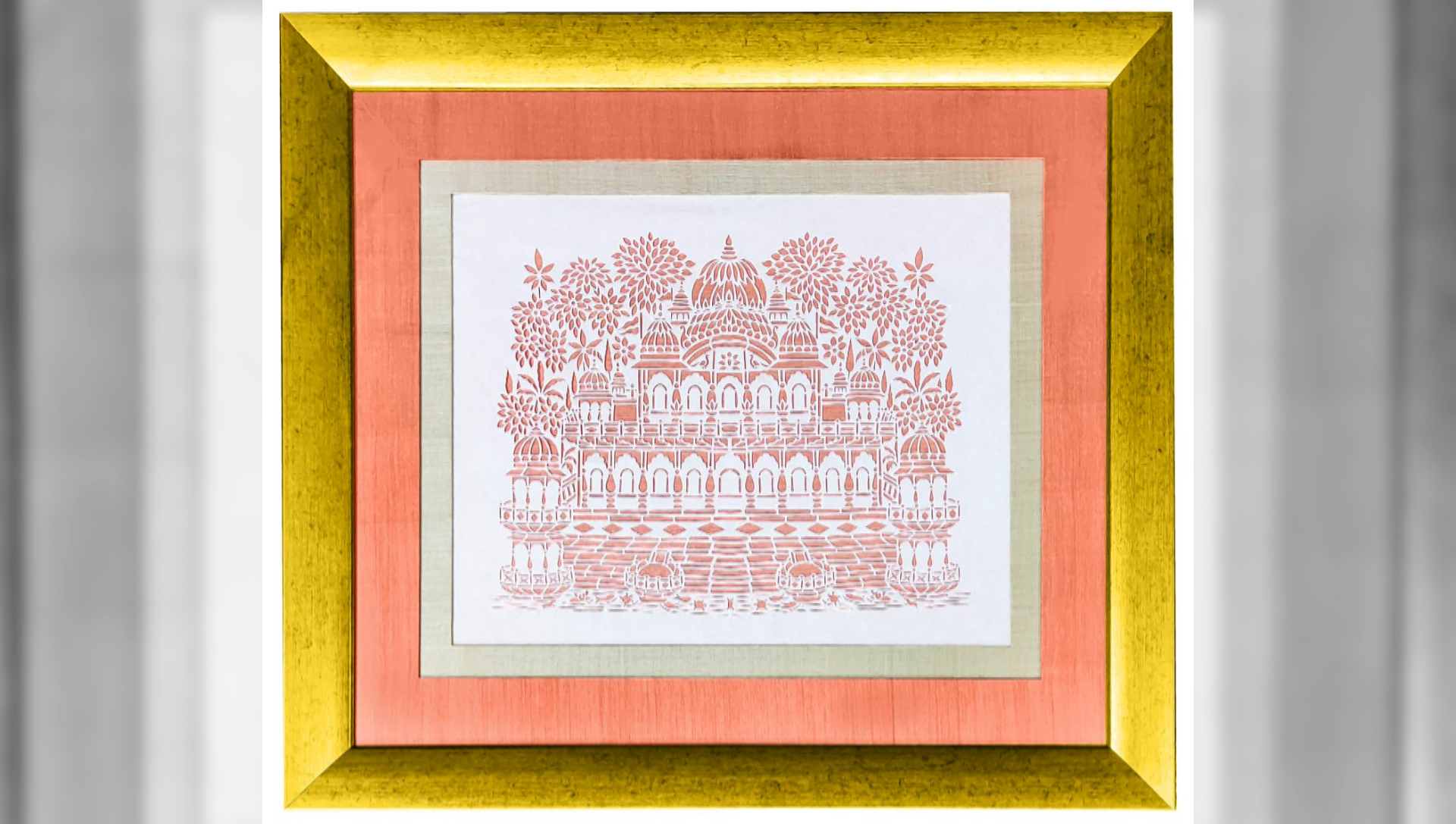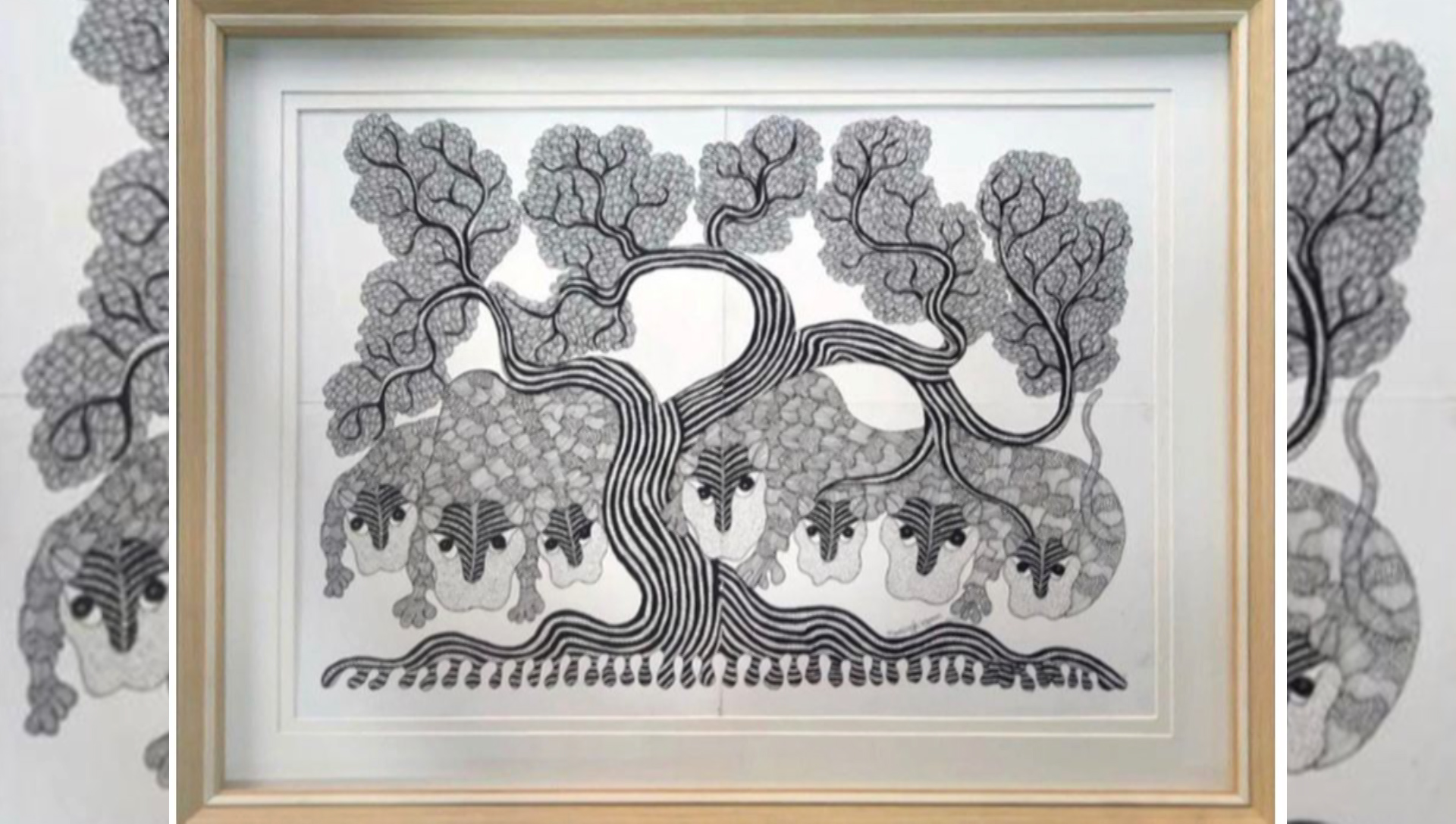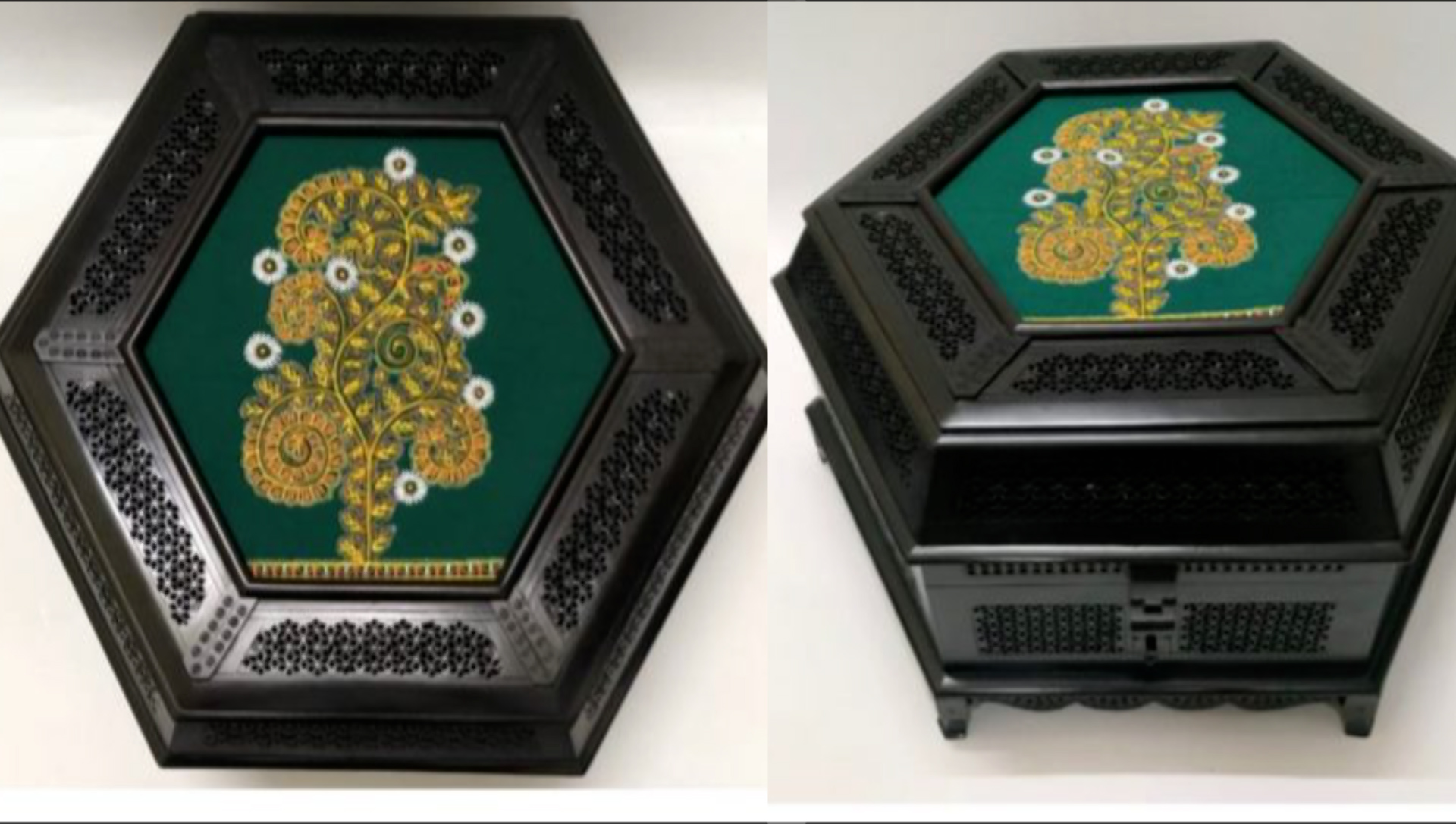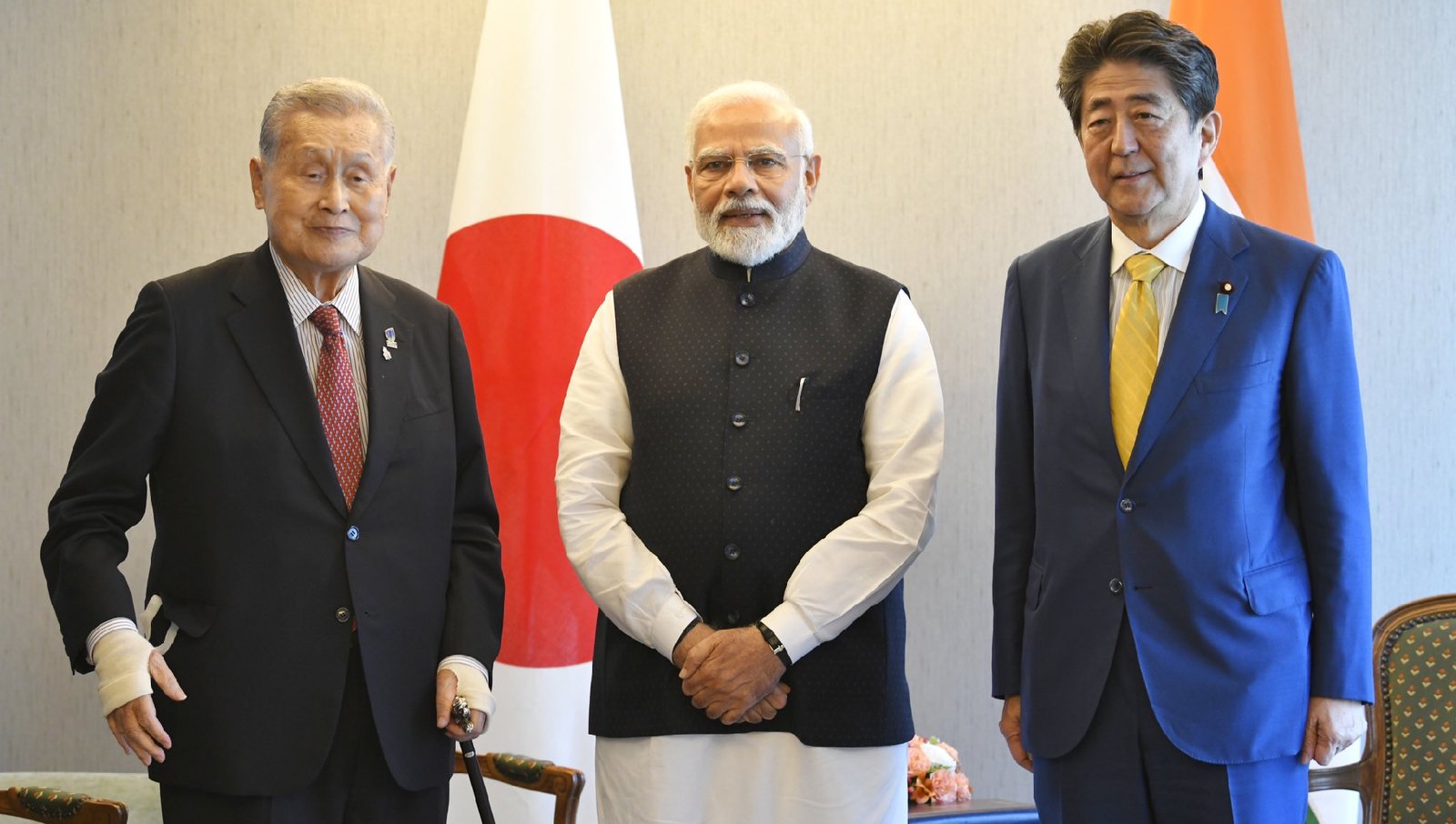NEW DELHI: His business-like approach notwithstanding, Prime Minister Narendra Modi is also known to promote the arts of India through gifts that he often picks for his meetings with world leaders.
It was no different during the Quad Leaders’ Summit in Tokyo, Japan when PM Modi once again showcased the vastly varied Indian culture through gifts to US President Joe Biden, Japanese Premier Fumio Kishida and Australian PM Anthony Albanese along with gifts for Shinzo Abe and Yoshiro Mori, the two former PM’s of Japan.
President Biden was presented with a painting depicting the Sanji art form. This intricate Sanjhi Panel is based on the theme of Thakurani Ghat from Mathura by a National Awardee.

Sanjhi, the art of hand-cutting designs on paper, is a typical art form of Mathura in Uttar Pradesh, the legendary home of Lord Krishna. Traditionally motifs from Lord Krishna’s stories are created in stencils. These stencils are cut freehand using a scissor or a blade. The delicate Sanjhi is often held together by thin sheets of paper.
PM Modi gifted Gond paintings, which are a famous tribal art form from Madhya Pradesh, to Australian PM Albanese. The gift holds significance as Gond art is considered very similar to Aboriginal art of Australia. The Aborigines have their own stories like the Gonds do about creation.
These two art forms are divided by thousands of miles of physical distance between their creators but are closely united and connected in their sentimentality and emotional core which are the definitive features of any art form.

Gond paintings are created by dots and lines and have been a part of pictorial art on the walls and floors of Gonds. This form of painting is done with locally available natural colours and materials like charcoal, coloured soil, plant sap, leaves, cow dung, limestone powder, etc.
PM Modi gave Japanese PM Kishida a wooden handcrafted box adorned with a Rogan painting.
The Rogan painting is an art of cloth printing practised in the Kutch District of Gujarat, PM Modi’s home state. In this craft, the paint is made from boiled oil and vegetable dyes and laid down on fabric using either a metal block (printing) or a stylus (painting). The craft nearly died out in the late 20th century, with Rogan painting being practised by only one family.

The word ‘Rogan’ comes from Persian, meaning varnish or oil. The process of making Rogan painting is very laborious and skilful. Artists place a small amount of this paint paste into their palms. At room temperature, the paint is carefully twisted into motifs and images using a metal rod that never comes in contact with the fabric. Next, the artisan folds his designs into a blank fabric, thereby printing its mirror image. In effect, it is a very basic form of printing. Previously the designs were simple and rustic in nature but with the passage of time, the craft has become more stylized and now is regarded as a high art form.
Hand carving on wood is an intricate art inspired by traditional jali designs taken from famous monuments of India. The designs are created by the experts in the most synchronized manner. The skill of wood carving is an example of the excellent craftsmanship and rich tradition of India.
PM Modi also gave Pattumadai silk mats to the former Japanese Prime Ministers Abe and Mori.
Pattamadai, a small village in the Thirunelveli district of Tamil Nadu, is the traditional home to a unique tradition of superfine silk mat weaving from ‘korai’ grass grown on the banks of river Tamiraparani.
The mats are hand-woven using cotton or silk in the weft. The use of silk thread gives a royal sheen and definite appeal to the mat. Korai grass is found in abundance along the banks of the rivers and in marshy areas in Tamil Nadu and Kerala.
The most unique aspect of a Pattamadai mat is how soft and flexible it is. The finest and most closely woven Pattamadai mats are called “pattu pai” or silk mats because these mats feel like a bolt of silk and fall like cloth. It takes nearly 45 days of soaking and processing and then about 2-3 weeks to make a single mat. The processing and weaving time can extend to nearly 4 months for a super fine “pattu” pai.










